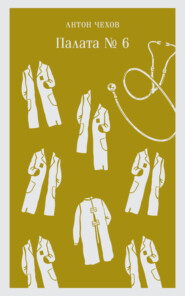По всем вопросам обращайтесь на: info@litportal.ru
(©) 2003-2024.
✖
The Duel and Other Stories
Настройки чтения
Размер шрифта
Высота строк
Поля
In the roar of the wind and the sea and the crashes of thunder, it was difficult to hear.
"It's nothing," shouted the zoologist, and hurried home.
XVII
"Upon my mind, weighed down with woe,
Crowd thoughts, a heavy multitude:
In silence memory unfolds
Her long, long scroll before my eyes.
Loathing and shuddering I curse
And bitterly lament in vain,
And bitter though the tears I weep
I do not wash those lines away."
PUSHKIN.
Whether they killed him next morning, or mocked at him – that is, left him his life – he was ruined, anyway. Whether this disgraced woman killed herself in her shame and despair, or dragged on her pitiful existence, she was ruined anyway.
So thought Laevsky as he sat at the table late in the evening, still rubbing his hands. The windows suddenly blew open with a bang; a violent gust of wind burst into the room, and the papers fluttered from the table. Laevsky closed the windows and bent down to pick up the papers. He was aware of something new in his body, a sort of awkwardness he had not felt before, and his movements were strange to him. He moved timidly, jerking with his elbows and shrugging his shoulders; and when he sat down to the table again, he again began rubbing his hands. His body had lost its suppleness.
On the eve of death one ought to write to one's nearest relation. Laevsky thought of this. He took a pen and wrote with a tremulous hand:
"Mother!"
He wanted to write to beg his mother, for the sake of the merciful God in whom she believed, that she would give shelter and bring a little warmth and kindness into the life of the unhappy woman who, by his doing, had been disgraced and was in solitude, poverty, and weakness, that she would forgive and forget everything, everything, everything, and by her sacrifice atone to some extent for her son's terrible sin. But he remembered how his mother, a stout, heavily-built old woman in a lace cap, used to go out into the garden in the morning, followed by her companion with the lap-dog; how she used to shout in a peremptory way to the gardener and the servants, and how proud and haughty her face was – he remembered all this and scratched out the word he had written.
There was a vivid flash of lightning at all three windows, and it was followed by a prolonged, deafening roll of thunder, beginning with a hollow rumble and ending with a crash so violent that all the window-panes rattled. Laevsky got up, went to the window, and pressed his forehead against the pane. There was a fierce, magnificent storm. On the horizon lightning-flashes were flung in white streams from the storm-clouds into the sea, lighting up the high, dark waves over the far-away expanse. And to right and to left, and, no doubt, over the house too, the lightning flashed.
"The storm!" whispered Laevsky; he had a longing to pray to some one or to something, if only to the lightning or the storm-clouds. "Dear storm!"
He remembered how as a boy he used to run out into the garden without a hat on when there was a storm, and how two fair-haired girls with blue eyes used to run after him, and how they got wet through with the rain; they laughed with delight, but when there was a loud peal of thunder, the girls used to nestle up to the boy confidingly, while he crossed himself and made haste to repeat: "Holy, holy, holy.." Oh, where had they vanished to! In what sea were they drowned, those dawning days of pure, fair life? He had no fear of the storm, no love of nature now; he had no God. All the confiding girls he had ever known had by now been ruined by him and those like him. All his life he had not planted one tree in his own garden, nor grown one blade of grass; and living among the living, he had not saved one fly; he had done nothing but destroy and ruin, and lie, lie..
"What in my past was not vice?" he asked himself, trying to clutch at some bright memory as a man falling down a precipice clutches at the bushes.
School? The university? But that was a sham. He had neglected his work and forgotten what he had learnt. The service of his country? That, too, was a sham, for he did nothing in the Service, took a salary for doing nothing, and it was an abominable swindling of the State for which one was not punished.
He had no craving for truth, and had not sought it; spellbound by vice and lying, his conscience had slept or been silent. Like a stranger, like an alien from another planet, he had taken no part in the common life of men, had been indifferent to their sufferings, their ideas, their religion, their sciences, their strivings, and their struggles. He had not said one good word, not written one line that was not useless and vulgar; he had not done his fellows one ha'p'orth of service, but had eaten their bread, drunk their wine, seduced their wives, lived on their thoughts, and to justify his contemptible, parasitic life in their eyes and in his own, he had always tried to assume an air of being higher and better than they. Lies, lies, lies..
He vividly remembered what he had seen that evening at Muridov's, and he was in an insufferable anguish of loathing and misery. Kirilin and Atchmianov were loathsome, but they were only continuing what he had begun; they were his accomplices and his disciples. This young weak woman had trusted him more than a brother, and he had deprived her of her husband, of her friends and of her country, and had brought her here – to the heat, to fever, and to boredom; and from day to day she was bound to reflect, like a mirror, his idleness, his viciousness and falsity – and that was all she had had to fill her weak, listless, pitiable life. Then he had grown sick of her, had begun to hate her, but had not had the pluck to abandon her, and he had tried to entangle her more and more closely in a web of lies… These men had done the rest.
Laevsky sat at the table, then got up and went to the window; at one minute he put out the candle and then he lighted it again. He cursed himself aloud, wept and wailed, and asked forgiveness; several times he ran to the table in despair, and wrote:
"Mother!"
Except his mother, he had no relations or near friends; but how could his mother help him? And where was she? He had an impulse to run to Nadyezhda Fyodorovna, to fall at her feet, to kiss her hands and feet, to beg her forgiveness; but she was his victim, and he was afraid of her as though she were dead.
"My life is ruined," he repeated, rubbing his hands. "Why am I still alive, my God!."
He had cast out of heaven his dim star; it had fallen, and its track was lost in the darkness of night. It would never return to the sky again, because life was given only once and never came a second time. If he could have turned back the days and years of the past, he would have replaced the falsity with truth, the idleness with work, the boredom with happiness; he would have given back purity to those whom he had robbed of it. He would have found God and goodness, but that was as impossible as to put back the fallen star into the sky, and because it was impossible he was in despair.
When the storm was over, he sat by the open window and thought calmly of what was before him. Von Koren would most likely kill him. The man's clear, cold theory of life justified the destruction of the rotten and the useless; if it changed at the crucial moment, it would be the hatred and the repugnance that Laevsky inspired in him that would save him. If he missed his aim or, in mockery of his hated opponent, only wounded him, or fired in the air, what could he do then? Where could he go?
"Go to Petersburg?" Laevsky asked himself. But that would mean beginning over again the old life which he cursed. And the man who seeks salvation in change of place like a migrating bird would find nothing anywhere, for all the world is alike to him. Seek salvation in men? In whom and how? Samoylenko's kindness and generosity could no more save him than the deacon's laughter or Von Koren's hatred. He must look for salvation in himself alone, and if there were no finding it, why waste time? He must kill himself, that was all..
He heard the sound of a carriage. It was getting light. The carriage passed by, turned, and crunching on the wet sand, stopped near the house. There were two men in the carriage.
"Wait a minute; I'm coming directly," Laevsky said to them out of the window. "I'm not asleep. Surely it's not time yet?"
"Yes, it's four o'clock. By the time we get there.."
Laevsky put on his overcoat and cap, put some cigarettes in his pocket, and stood still hesitating. He felt as though there was something else he must do. In the street the seconds talked in low voices and the horses snorted, and this sound in the damp, early morning, when everybody was asleep and light was hardly dawning in the sky, filled Laevsky's soul with a disconsolate feeling which was like a presentiment of evil. He stood for a little, hesitating, and went into the bedroom.
Nadyezhda Fyodorovna was lying stretched out on the bed, wrapped from head to foot in a rug. She did not stir, and her whole appearance, especially her head, suggested an Egyptian mummy. Looking at her in silence, Laevsky mentally asked her forgiveness, and thought that if the heavens were not empty and there really were a God, then He would save her; if there were no God, then she had better perish – there was nothing for her to live for.
All at once she jumped up, and sat up in bed. Lifting her pale face and looking with horror at Laevsky, she asked:
"Is it you? Is the storm over?"
"Yes."
She remembered; put both hands to her head and shuddered all over.
"How miserable I am!" she said. "If only you knew how miserable I am! I expected," she went on, half closing her eyes, "that you would kill me or turn me out of the house into the rain and storm, but you delay.. delay."
Warmly and impulsively he put his arms round her and covered her knees and hands with kisses. Then when she muttered something and shuddered with the thought of the past, he stroked her hair, and looking into her face, realised that this unhappy, sinful woman was the one creature near and dear to him, whom no one could replace.
When he went out of the house and got into the carriage he wanted to return home alive.
XVIII
The deacon got up, dressed, took his thick, gnarled stick and slipped quietly out of the house. It was dark, and for the first minute when he went into the street, he could not even see his white stick. There was not a single star in the sky, and it looked as though there would be rain again. There was a smell of wet sand and sea.
"It's to be hoped that the mountaineers won't attack us," thought the deacon, hearing the tap of the stick on the pavement, and noticing how loud and lonely the taps sounded in the stillness of the night.
When he got out of town, he began to see both the road and his stick. Here and there in the black sky there were dark cloudy patches, and soon a star peeped out and timidly blinked its one eye. The deacon walked along the high rocky coast and did not see the sea; it was slumbering below, and its unseen waves broke languidly and heavily on the shore, as though sighing "Ouf!" and how slowly! One wave broke – the deacon had time to count eight steps; then another broke, and six steps; later a third. As before, nothing could be seen, and in the darkness one could hear the languid, drowsy drone of the sea. One could hear the infinitely faraway, inconceivable time when God moved above chaos.
The deacon felt uncanny. He hoped God would not punish him for keeping company with infidels, and even going to look at their duels. The duel would be nonsensical, bloodless, absurd, but however that might be, it was a heathen spectacle, and it was altogether unseemly for an ecclesiastical person to be present at it. He stopped and wondered – should he go back? But an intense, restless curiosity triumphed over his doubts, and he went on.
"Though they are infidels they are good people, and will be saved," he assured himself. "They are sure to be saved," he said aloud, lighting a cigarette.
By what standard must one measure men's qualities, to judge rightly of them? The deacon remembered his enemy, the inspector of the clerical school, who believed in God, lived in chastity, and did not fight duels; but he used to feed the deacon on bread with sand in it, and on one occasion almost pulled off the deacon's ear. If human life was so artlessly constructed that every one respected this cruel and dishonest inspector who stole the Government flour, and his health and salvation were prayed for in the schools, was it just to shun such men as Von Koren and Laevsky, simply because they were unbelievers? The deacon was weighing this question, but he recalled how absurd Samoylenko had looked yesterday, and that broke the thread of his ideas. What fun they would have next day! The deacon imagined how he would sit under a bush and look on, and when Von Koren began boasting next day at dinner, he, the deacon, would begin laughing and telling him all the details of the duel.
"How do you know all about it?" the zoologist would ask.
"Well, there you are! I stayed at home, but I know all about it."
It would be nice to write a comic description of the duel. His father-in-law would read it and laugh. A good story, told or written, was more than meat and drink to his father-in-law.
The valley of the Yellow River opened before him. The stream was broader and fiercer for the rain, and instead of murmuring as before, it was raging. It began to get light. The grey, dingy morning, and the clouds racing towards the west to overtake the storm-clouds, the mountains girt with mist, and the wet trees, all struck the deacon as ugly and sinister. He washed at the brook, repeated his morning prayer, and felt a longing for tea and hot rolls, with sour cream, which were served every morning at his father-in-law's. He remembered his wife and the "Days past Recall," which she played on the piano. What sort of woman was she? His wife had been introduced, betrothed, and married to him all in one week: he had lived with her less than a month when he was ordered here, so that he had not had time to find out what she was like. All the same, he rather missed her.

















